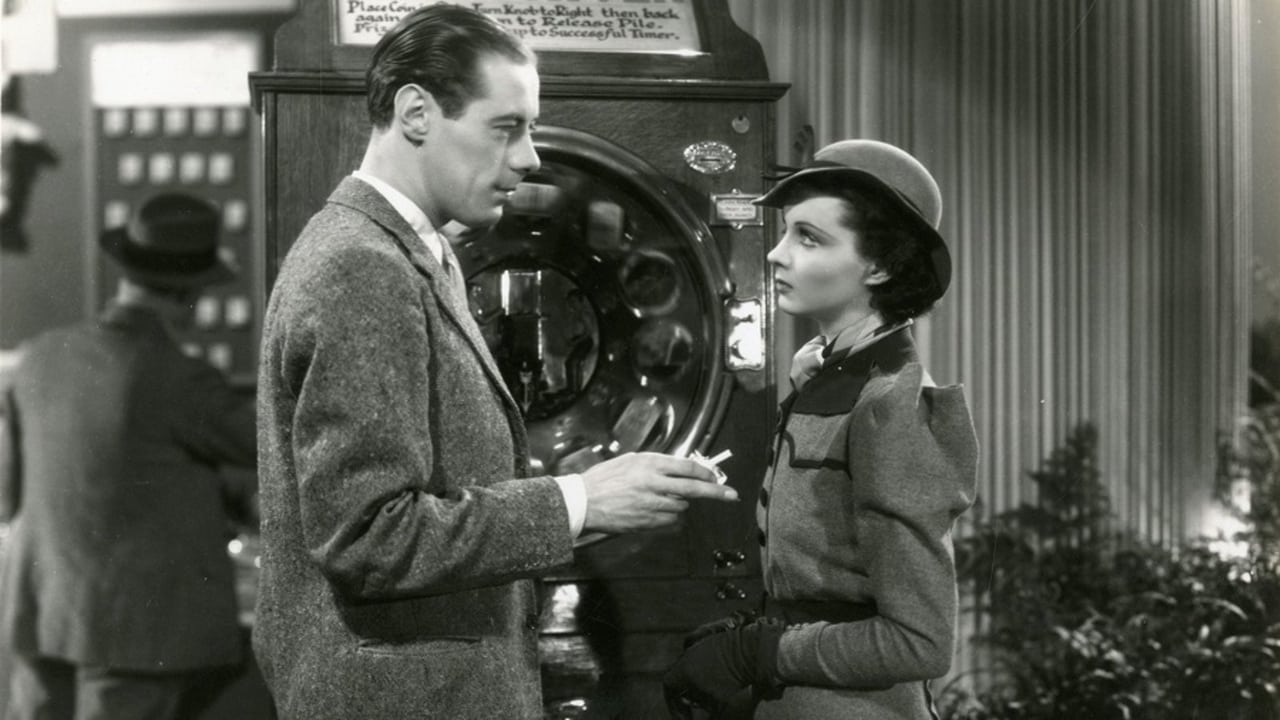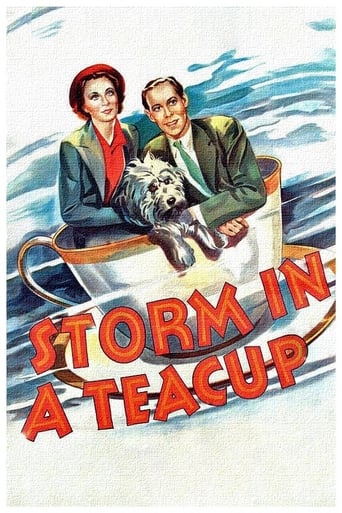

I agree with most of the other reviews, but there's lots more brilliance that has not been mentioned. James Bridie take a very funny swipe at American 1930's slang (the new maid and a funny reply by the Lord Judge).I don't think of this as being at all Capra-like. None of his films has this kind of snappy, clever satirical dialog.I've come to really consider this film of the best British comedies of the 1930's.The current (2013) DVD issue is part of "The Vivien Leigh Anniversary Collection" and is a really great print. Buy it and you'll see!
... View MoreCecil Parker is already the blowhard he was to perfect in later movies. He's the Provost of a Scottish village called Beike, pronounced something like "Beakie." He's running for a higher post and gives speeches promoting the value of "a stern hand at the helm." (Is this supposed to be a snap at Hitler?) The poor, matronly, pitifully broke Irish lady, Sarah Algood, sells fast food from a cart and is unable to pay for her dog, Patsy's, license. Driven by Parker, the authorities reluctantly take poor Patsy and condemn her to death by injection. Sure and the dog is nae but a wee mongrel and Parker has bigger things on his mind, making up to the stuffy aristocrats who will back his candidacy.It's a big mistake on Parker's part to ignore that dog. It's always a mistake in the movies to treat a dog with disrespect. You always pay for it in the end.A new reporter for the local newspaper shows up. That's Rex Harrison, full of his usual charming insouciance regarding the social folkways. He writes a piece about the dog and loses his job. And he falls for Parker's daughter, Vivien Leigh, slender, youthful, radiant. When she raises her eyebrows, only one lifts, the one on her right. The left eyebrow remains comfortably in its accustomed place. She's torn between her duty to her father and her love for Harrison.Well -- here we have a charming little village full of folk who know everyone else in town, and a bit of conflict over a dog. It's pregnant with possibilities, some bad. The charm could turn cloying but it doesn't. Nor does the film turn into an Ealing comedy with the subtle touch of genius in every other scene.In fact it's rather dull until about half-way through when the screen explodes and a thousand dogs invade the mansion of Parker while he is entertaining the high muck-a-mucks whose political support is mandatory. It's hilarious. The skinny old men in kilts are dancing awkwardly around, men shouting, dogs barking. The dogs leap on the table and feast on the prepared dinner. They tug at the hems of the kilts. Finally, the elders make their escape from the ruined mansion, shrieking and waving their hands.What follows is a courtroom farce in which Harrison is tried for one or another crime on charges leveled by Parker. It ends happily. Parker decides it's a better ploy to be a populist than a demagogue. Harrison and Leigh wind up in an old car with "Just Married" on the trunk. Or, pardon me, the boot.The movie lacks the tranquil assurance of a film like "A Canterbury Tale," which is also about nothing much. And it does have its longueurs but they're redeemed by the dog invasion.
... View MoreTwo years before the monumental "Gone With the Wind," Vivien Leigh made this rather bad film with Rex Harrison. Of all people, the wonderful Sara Allgood steals the show whose dog is ready to be put to death since she hasn't paid the local dog tax in Baikie, Scotland.A story of the corruption of politics follows. Leigh's father, the town provost, has political aspirations until he is exposed by Harrison in his news story.The scene with the dogs invading the mansion is quite funny; unfortunately, the movie really isn't; in fact, it's quite inane and dreary to say the least.The person who made Allgood's costume in the last scene of the film in court deserved an Oscar nomination.
... View MoreHidden from me, anyhow - I'd never heard of it until browsing through my local library's video collection. Imagine an Ealing comedy as directed by Frank Capra. All of the acting is first-rate (and Vivien Leigh, pre-"Gone with the Wind", was about as beautiful as any woman could be), and the sets are unusually lavish for what must have been a medium-budget film in its time. The characters are strong yet sufficiently complex to lift the story above the simplistic comic melodrama it might have been - I can't imagine many American films of the time (or of this time) that would allow the "villain" of the piece enough courage to face down and walk through a mob that has just publicly humiliated him and is ready to attack him. The comedy is wonderfully handled, especially during the scene in which a pack of dogs runs rampant through the villain's stately home, and during the climactic courtroom scene. (The film's funniest line makes sense only in the context of the film: Ursula Jeans' anguished "Harold, he called me a woman!") "Storm in a Teacup" is a genuine delight.
... View More